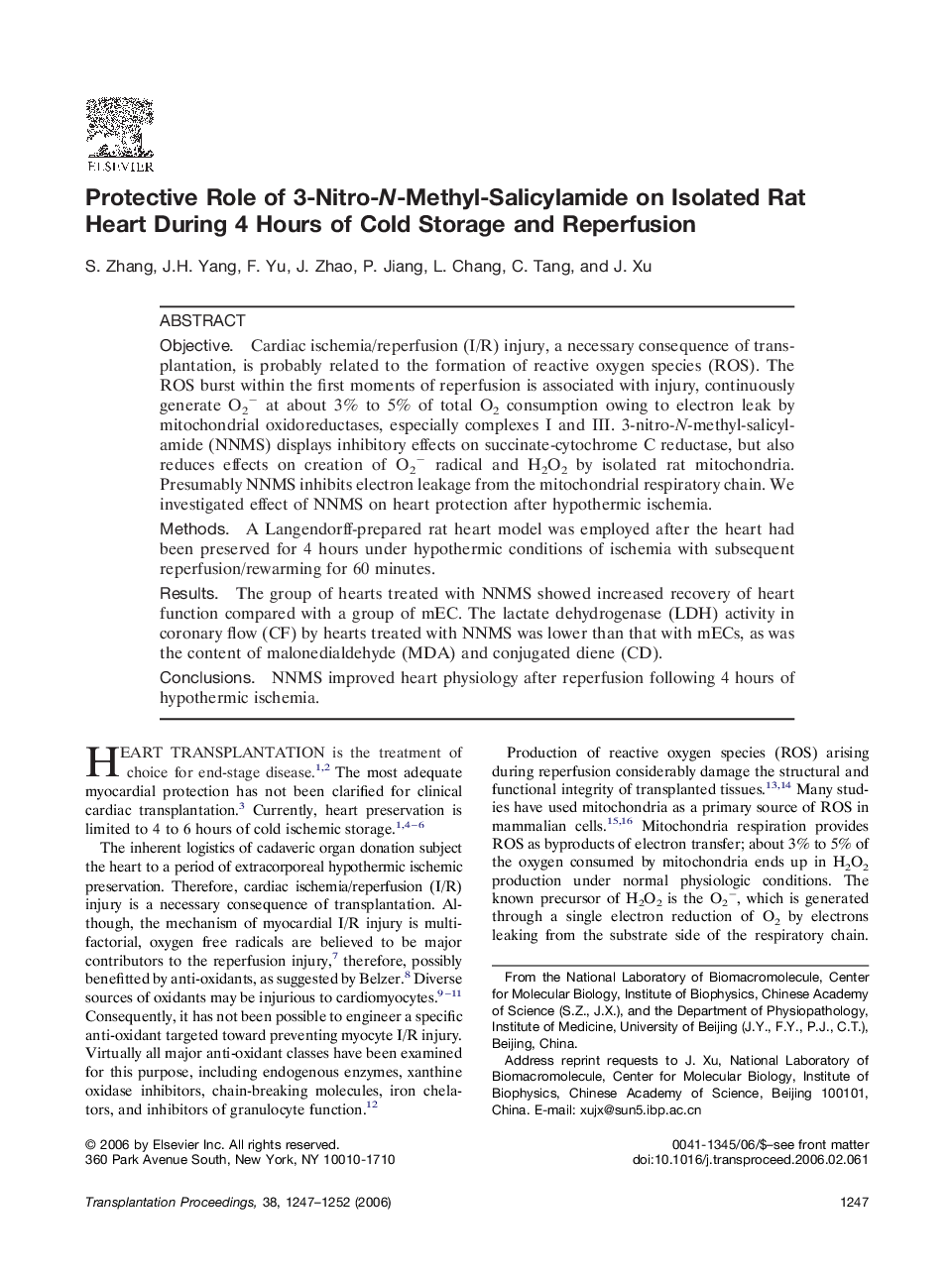| Article ID | Journal | Published Year | Pages | File Type |
|---|---|---|---|---|
| 4263407 | Transplantation Proceedings | 2006 | 6 Pages |
ObjectiveCardiac ischemia/reperfusion (I/R) injury, a necessary consequence of transplantation, is probably related to the formation of reactive oxygen species (ROS). The ROS burst within the first moments of reperfusion is associated with injury, continuously generate O2− at about 3% to 5% of total O2 consumption owing to electron leak by mitochondrial oxidoreductases, especially complexes I and III. 3-nitro-N-methyl-salicylamide (NNMS) displays inhibitory effects on succinate-cytochrome C reductase, but also reduces effects on creation of O2− radical and H2O2 by isolated rat mitochondria. Presumably NNMS inhibits electron leakage from the mitochondrial respiratory chain. We investigated effect of NNMS on heart protection after hypothermic ischemia.MethodsA Langendorff-prepared rat heart model was employed after the heart had been preserved for 4 hours under hypothermic conditions of ischemia with subsequent reperfusion/rewarming for 60 minutes.ResultsThe group of hearts treated with NNMS showed increased recovery of heart function compared with a group of mEC. The lactate dehydrogenase (LDH) activity in coronary flow (CF) by hearts treated with NNMS was lower than that with mECs, as was the content of malonedialdehyde (MDA) and conjugated diene (CD).ConclusionsNNMS improved heart physiology after reperfusion following 4 hours of hypothermic ischemia.
